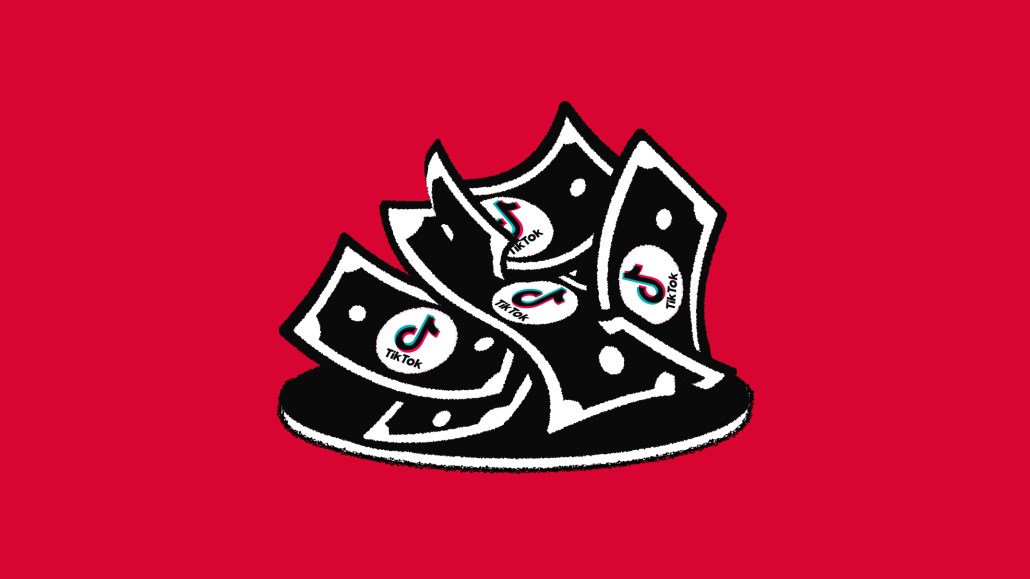Secure your place at the Digiday Media Buying Summit in Nashville, March 2-4
TikTok’s on the hunt for brands to reach its most popular communities as Unilever leads the way

Editor’s note: this story has been updated after TikTok contacted this publication to clarify that it does not refer to this deal as a sponsorship. It did not want there to be any confusion between this deal and the other advertising options it offers. That said, the original version of this article made no such claims. It instead referred to the deal being a sponsorship because of its similarities to a typical sponsorship deal. The headline has been updated accordingly, while any references to a sponsorship are purely used as a way to describe the deal, which is to develop a stronger relationship between two groups due to their commonalities.
TikTok is on the lookout for advertisers to sponsor hashtags that are already trending among its users.
In the past, advertisers would have to create their own content to associate with trending topics, also known as hashtags, like #BookTok or #CleanTok.
However, now they’re able to be officially linked to these viral moments — for a price, of course. That price is unknown (TikTok refused to disclose the details) but clearly sponsoring those hashtags isn’t going to be cheap. Not when a typical branded hashtag on TikTok’s discovery banner costs $150,000 — and that’s just for six days.
“We’re always looking to do it [partnerships around communities], but we can’t do loads of them,” said Lucy Banks, head of content partnerships for TikTok in the U.K. and Ireland. “They’re really precious. They have to have integrity and align with our own agenda. It’s truly something that the community loves. And it’s absolutely got to be the right partner when we go into these things together.”
Given this strict criteria, it comes as no surprise that these partnerships have been relatively scarce so far. In fact, the first one was almost a year ago when Amazon sponsored the #BookTok hashtag for the literary community on the app — and even then it was only in the U.K.
Unsurprisingly, the second partnership is a lot bigger.
TikTok has struck a global deal with Unilever to sponsor one of its biggest communities — the #CleanTok hashtag, which has been supported by creative agency Gravity Road and media agency Mindshare.
What this means is Unilever gets direct access to and insights on one of TikTok’s largest communities. Indeed, #CleanTok has already reached 79.3 billion views — 35 billion of which were achieved in the 12 months ending March 2023. By comparison, #BeautyTok, assumed to be one of TikTok’s largest communities, achieved 49.9 billion views to date.
“We strongly believe this [TikTok] is the go to place for inspiration on how to clean your home,” said Edu Campanella, CMO of Unilever’s home care brands. “Sometimes you get the inspiration but the purchase doesn’t immediately follow. We want to increase our brand power within this audience. And everything we do ultimately leads to conversion.”
The partnership, which runs for 40 weeks across 10 markets including the U.K., Vietnam and Turkey until January 2024, currently includes co-created content through various series’, which tap into TikTok global trends such as Sunday Reset and Cleaning Conundrum. In addition, the dedicated #CleanTok Awards will celebrate the most helpful and engaging content and creators within the community.
There are around 100 creators across the 10 active markets, who are expected to take part in Unilever’s sponsorship of the #CleanTok hashtag. And they’re not all expected to be cleaning experts either. Given how important taking care of their home is to everyone, comedians, beauty and even fitness bloggers are just some of the creators taking part, making the content far more inclusive.
Measuring the effectiveness of these creators poses a challenge as each influencer performs differently. However, Unilever has made efforts to address this issue, considering it to be one of its largest partnerships with a social media platform to date.
“This entire partnership comes with a major project behind on the cost per reach,” Campanella added. “So we are measuring this on the approach to make sure we are making it as efficient as possible.”
In other words, this is a brand-building play. While hashtags are a way for people to quickly search TikTok for specific topics, TikTok isn’t selling them to try to monetize that behavior per se. Rather, it’s using these deals as a way to essentially play matchmaker between brands and its most vibrant communities. It’s not necessarily a scalable way to go about it but it could be a commercially lucrative way to make money from creators in a way that’s unique to TikTok.
“[TikTok] seems to be differentiating themselves, in this instance, by actively engaging in the community and playing a hands-on role in the creator engagement efforts,” said Brendan Gahan, partner and chief social officer at Mekanism. “Contrast this with YouTube and Meta, which tend to emphasize the importance of community, but leave it up to partners to activate on those efforts.”
More in Marketing

Future of Marketing Briefing: AI’s branding problem is why marketers keep it off the label
The reputational downside is clearer than the branding upside, which makes discretion the safer strategy.

While holdcos build ‘death stars of content,’ indie creative agencies take alternative routes
Indie agencies and the holding company sector were once bound together. The Super Bowl and WPP’s latest remodeling plans show they’re heading in different directions.

How Boll & Branch leverages AI for operational and creative tasks
Boll & Branch first and foremost uses AI to manage workflows across teams.








